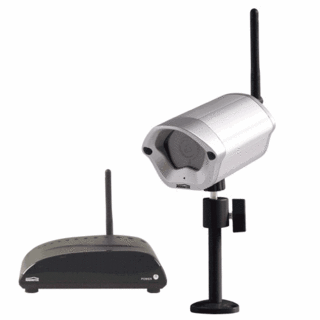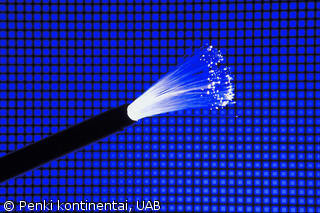Idea of "total war" redefined the conduct of armies against foreign populations in the mid-20th century.
Published:
13 December 2000 y., Wednesday
The Internet now offers people the opportunity to communicate with others around the world almost as if they were neighbors.
Through the Internet, people can gain access to local papers in the native language or dialect, browse personal Web sites, listen to local radio stations talking about local concerns and even watch everyday life unfold via thousands of Web cams pointing at everything from street corners to gold fish bowls.
The Internet, after all, was designed by the U.S. military for war, as a way to maintain communication networks even in the case of a massive attack. The distributed nature of the Internet makes this possible.
This distribution of nodes and centers of control may in fact redefine some of our most basic notions of war in much the same way that the idea of "total war" redefined the conduct of armies against foreign populations in the mid-20th century.
The idea of cyberwar does offer considerable appeal to any military capable of establishing such a program. After all, wars are messy and people, especially when confronted with the visual images of war, tend to have a negative disposition toward these activities.
Cyberwar, on the other hand, offers the possibility of "cleaning" war up a bit with no bombs (or perhaps much fewer bombs), no direct "collateral damage" and really no center of attention to videotape. Ironically, while cyberwar has the potential of being everywhere all at once it also offers the ability to defocus the conduct of war to the point where it may almost appear invisible.
The effectiveness of cyberwar depends on two factors. The first is the degree to which a nation's life-support system is connected electronically. And second, it depends on the ability of the aggressor to collect, process and ultimately redirect massive amounts of information.
Šaltinis:
yomiuri.co.jp
Copying, publishing, announcing any information from the News.lt portal without written permission of News.lt editorial office is prohibited.
The most popular articles
Software company announced new structure_ of it_s business.
more »
 Just a few weeks ago, the world's tiniest video camera was as small as a grain of rice. Today, the world's NanoEst camera is even smaller.
more »
Just a few weeks ago, the world's tiniest video camera was as small as a grain of rice. Today, the world's NanoEst camera is even smaller.
more »
 During the experiment two research groups managed to overcome a symbolic 100 TB/s optical fiber data transmission speed limit.
more »
During the experiment two research groups managed to overcome a symbolic 100 TB/s optical fiber data transmission speed limit.
more »
 Apple’s long–awaited online storage service for iTunes could be named iCloud, if only rumours are to be believed.
more »
Apple’s long–awaited online storage service for iTunes could be named iCloud, if only rumours are to be believed.
more »
 The founders of video-sharing site YouTube have bought bookmarking service Delicious from Yahoo.
more »
The founders of video-sharing site YouTube have bought bookmarking service Delicious from Yahoo.
more »
 The successful raid by hackers on Sony’s PlayStation Network is already being ranked among the biggest data thefts of all time.
more »
The successful raid by hackers on Sony’s PlayStation Network is already being ranked among the biggest data thefts of all time.
more »
 Apple has denied that its iPhones and 3G iPads have been secretly recording their owners' movements.
more »
Apple has denied that its iPhones and 3G iPads have been secretly recording their owners' movements.
more »
 Customers who have waited nearly 10 months for the white version of the iPhone 4 won’t have to wait much longer. The Great White iPhone 4 is finally here.
more »
Customers who have waited nearly 10 months for the white version of the iPhone 4 won’t have to wait much longer. The Great White iPhone 4 is finally here.
more »
 Researchers at Georgia Tech University are teaching a robot the basics of dialogue. Named "Simon", the robot has already been taught how to attract a person's attention but eventually, it's hoped he'll be able to interact and converse with humans in daily life.
more »
Researchers at Georgia Tech University are teaching a robot the basics of dialogue. Named "Simon", the robot has already been taught how to attract a person's attention but eventually, it's hoped he'll be able to interact and converse with humans in daily life.
more »
 3D? Terribly lame when it's tossed into devices as a bullet point feature. Trimensional for iPhone takes a picture of your face and maps your mug in a 3D model.
more »
3D? Terribly lame when it's tossed into devices as a bullet point feature. Trimensional for iPhone takes a picture of your face and maps your mug in a 3D model.
more »
 The European Union is to investigate whether internet service providers (ISPs) are providing fair access to online services.
more »
The European Union is to investigate whether internet service providers (ISPs) are providing fair access to online services.
more »